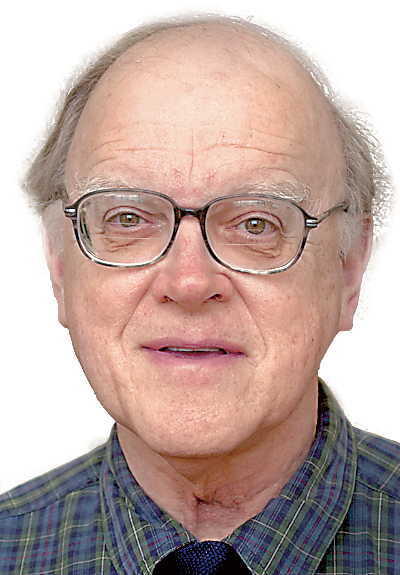"My very eager mother just served us nine pizzas."
This mnemonic or memory device tells us the order of planets in our solar system: Mercury, Venus, Earth, Mars, Jupiter, Saturn, Uranus, Neptune, Pluto, although the last has been demoted to the status of dwarf planet.
More than 20 years since learning this, Robin Posey, director of programs at the Community Foundation of Greater Chattanooga, recalls this and much more from a science class at her elementary school. She describes the teacher of that class as one of the most inspiring in all her years of formal education. I arranged a visit with the teacher.
The most engaging class I've ever experienced in science occurred on Feb. 13 at Big Ridge Elementary School, a public school in Chattanooga. Ronald Boston, who is in his 28th year of teaching science, got up early that day to crack through the ice on his pond to retrieve jars of water for his fifth-grade students to study under the microscope. Prepared, stained slides cost too much and would not allow students to study living organisms, so he was making his own.
Class began with the playing of a rap tune that described mitosis, the process of division of living cells. Students sang along. After a brief discussion about food chains and the variety of microscopic life in ponds, students began scanning the drops of water pipetted onto their glass slides. Two students shared each microscope. Finishing work on a slide, students cleaned it before Boston served up a fresh drop from a jar drawn from a deeper level of the pond.
A hand shot up. A girl had found a female daphnia in the process of laying eggs. One discovery followed another: a hydra, a cyclops, then a vinegar eel. When an unfamiliar organism was found, students turned to iPads on their lab tables to identify it and to learn its functions. Students sketched their discoveries with colored pencils and attached a description in their notebooks.
Throughout the class, Boston circulated among the young scientists. Never raising his voice, he said, "If you can hear me, clap your hands." Hand claps brought quiet and a brief discussion of a particular organism or its link to a human disease. The role of DNA in the determination of different species was highlighted.
When a student made a unique discovery, other students came to the microscope to see the creature. Food could be seen moving through the digestive tract of a round- worm. Larger organisms feasted upon smaller ones. A dozen or more discoveries were made during the session. Every student was captivated throughout the hour. They were reluctant to leave at the end of class.
I learned alongside the young students, never having viewed or learned of these species before. The excitement of my fellow classmates was infectious.
Before class adjourned, I learned that in two weeks the students would travel to an environmental camp for a weeklong interval of study and discovery. They could hardly wait.
Boston told me that, while he has no children, he has thousands of kids.
While politicians fight over budgets for education and testing protocols, countless thousands of public school teachers head to work each day. They are fulfilling a calling. They are dedicated to the belief that they can make crucial differences in the lives of children who depend upon them for an education in all branches of knowledge.
Some of the energy that we use in celebrating successful football coaches needs to be directed toward master teachers.
Contact Clif Cleaveland at ccleaveland@timesfreepress.com.

